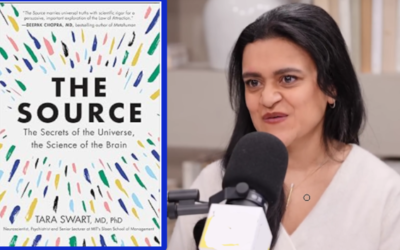Breathing-based meditation practices may be particularly beneficial for PTSD given that it is a stress disorder characterized by hyperarousal, autonomic dysfunction, negative affect, and difficulties with emotion regulation (American Psychiatric Association,2013; Sack, Hopper, & Lamprecht, 2004). Respiration and emotion are tightly coupled processes with bidirectional influence and breathing interventions have boosted emotion regulatory processes in healthy populations. They have also normalized parasympathetic activity in anxious populations not suffering from PTSD and in healthy populations with experimentally induced anxiety.
more=> PTSD Decreases with Meditation
Unlocking Your Super Brain: Neuroplasticity and Neurogenesis Explained
Some brain-boosting activities to try include:
– Learning a new language or musical instrument
– Solving complex puzzles or playing strategic games
– Reading challenging books or taking up a new hobby
The Source by Dr. Tara Swart Book Review Key Takeaways
Review of The Source by Tara Swart. Neuroscientist and Senior Lecturer at MIT reveals the surprising science that supports The Law of Attraction as an effective tool for self-discovery and offers a guide to discovering your authentic self to access your best life now....
How Our Brains Turned Fools Woke – Dr. Iain McGilchrist
Here are 20 key points from the video “How Our Brains Turned Fools Woke” – Dr. Iain McGilchrist:
The Power of Visualization: Lessons from Natan Sharansky, Arnold Schwarzenegger, and Michael Phelps
Visualization, the practice of creating vivid mental images of desired outcomes, has long been recognized as a powerful tool for achieving success. In this video we will look at three extreme individuals that harnessed the power of visualization to remarkable effect...
Unleash Your Inner Leader: 12 Habits of Highly Influential People
Influential leaders understand that true success is not about individual achievement, but about empowering and elevating those around them. They actively seek to mentor, support, and uplift their team members, helping them to reach their full potential.
Rewire Your Brain for Happiness: 7 Proven Techniques
Happiness is something we all strive for, yet it can often feel elusive or out of reach. The good news is, the latest neuroscience research has uncovered powerful techniques we can use to train our brains to be happier. In this video, I'm going to share 7 proven...
The Science of Habit Formation: 9 Steps to Build Lasting Change
Have you ever tried to start a new habit, only to find yourself slipping back into old routines after just a few days or weeks? If so, you're not alone. Building lasting habits is one of the biggest challenges we face in our personal and professional lives. But what...
Overcome Imposter Syndrome: 7 Strategies for Authentic Confidence
One of the keys to overcoming imposter syndrome is to embrace vulnerability and authenticity. Instead of trying to project an image of perfection, be honest about your struggles and uncertainties.
Share your imposter syndrome experiences with trusted colleagues or mentors. Chances are, they’ll be able to relate and offer valuable insights and support. Vulnerability can also help you build deeper, more meaningful connections with others.
Unlock Your Intuition: 4 Exercises to Develop Your Sixth Sense
1. Improved Decision-Making: Intuition can provide valuable insights and guidance when it comes to making important decisions. By tuning into your inner wisdom, you can often make more informed choices that align with your true values and goals.
2. Enhanced Creativity and Problem-Solving: Intuition can unlock new perspectives and innovative solutions, helping you approach challenges with a fresh, creative mindset.
3. Deeper Self-Awareness: As you learn to listen to your intuitive voice, you’ll gain a better understanding of your own thoughts, feelings, and motivations, leading to greater self-awareness and personal growth.
















